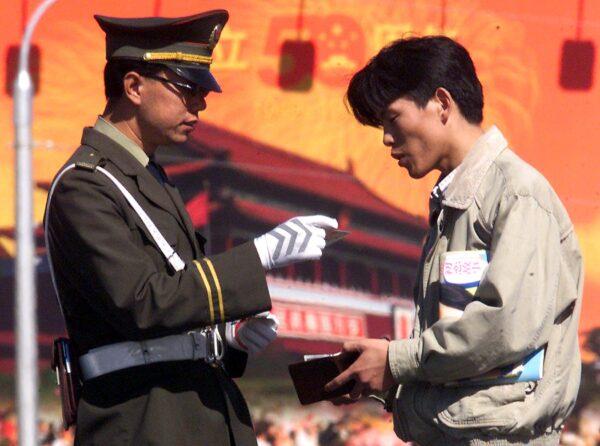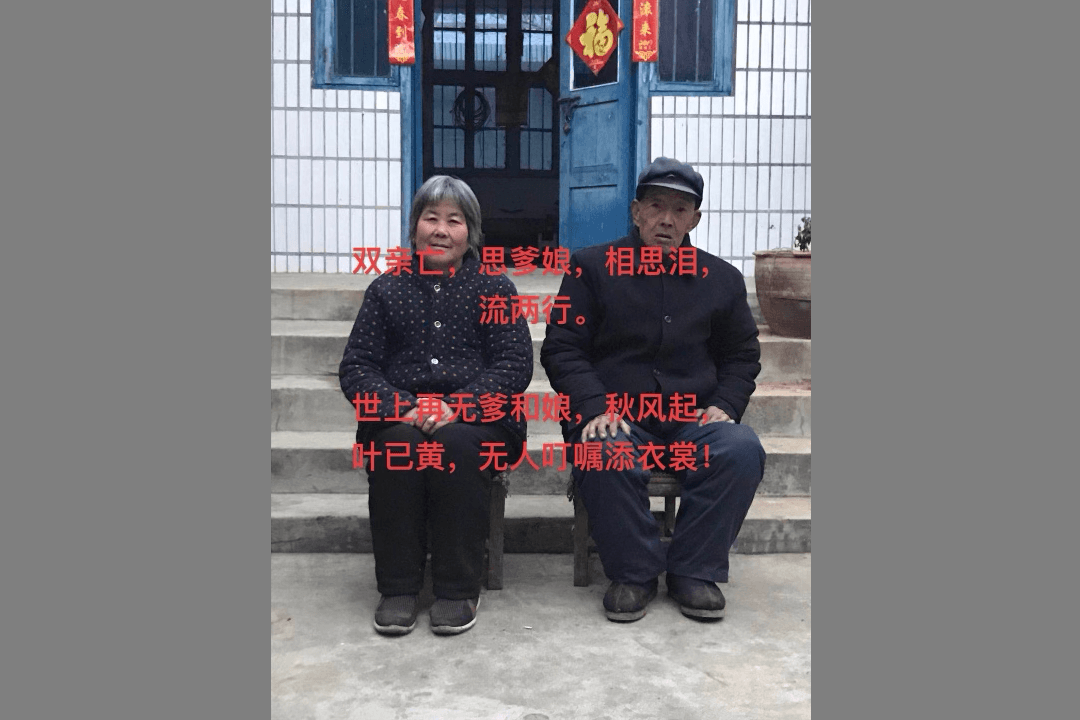A posthumous photo of a Chinese woman suggests that her death was not as simple as the police claimed, “died by hanging herself.” Her family is trying to find out what really happened to Ms. Ge but have been harassed by the police since they began looking for answers.
Chen Guangcheng, a famous Chinese human rights lawyer who escaped to the United States tweeted the woman’s posthumous photo.
The woman’s face was bruised, swollen, and covered in dried blood, but the police claimed she committed suicide. It’s obviously a “covering up and malfeasance of the police,” Chen tweeted on Dec. 12.
The deceased, Ge Shengrong, was a 68-year old woman who lived in Feicheng Town of Shandong Province. She happened to be the mother-in-law of Chen’s niece, Yan.
Police Mediation
Ge’s body was found in the early morning of Aug. 24, hanging on a small tree by a river bank east of the village. Witnesses said there were three pools of blood by the front door of a neighbor’s house, surnamed Feng, and Ge’s head had obvious signs of trauma injuries.The Fengs moved from the village the next day.
According to Yan, prior to her death, Ge was involved in a dispute with the Fengs and the police were called to intervene in the squabble.
On May 10, Ge passed by the Fengs who were arguing with another villager. The wife asked Ge to say something about the argument, Ge said, “Your [Feng’s] garden has occupied the road.” The Fengs responded by hitting her.

A witness, Ms. Chou (pseudonym) told The Epoch Times in October that the locals says the Fengs are notorious for their connections with the authorities, including one relative who is a retired police officer and another who worked at the court.
“From local ruffians, to the court and police, you’ll find them in their families,” she said.
Chou recalled that, during the beating, the Fengs threatened Ge saying they would kill her. “It’s okay to kill a couple of people, we have connections,” the wife said.
After the beating, a doctor’s report on May 30 said that Ge had minor injuries, including skin abrasions on her face (left cheek, lips, and right cheek), and soft tissue contusions on her abdomen and left lower extremity.
After that, police summoned Ge to the police station for mediation with the Fengs four times. The last time was on the evening of Aug. 22, a day before she died.
The first thing she said after leaving the police station on the 22nd was, “I was beaten for nothing, let’s go home.” According to Yan, Ge was forced to agree to the mediation, even though she wanted the police to handle the case according to the law.
Ge said to her daughter-in-law Yan, “The police director said if I don’t agree with the mediation, I will just have to stay in the police station for two days, and they’ll summon me every day … the Fengs claimed they will kill.” Yan recalled that Ge said she was worried about her two grandchildren.
Autopsy Report From Police
Ge’s son, Ming Jing, did not see her body until after the autopsy.Ming Jing said, “I only saw my mother’s face, the eyes were blue [bruised], the face was swollen.” The forensic examination form only said, “Hanging matches the cause of death.” Police did not provide the report until Oct. 5, after Ming Jing insisted on having an official document.
He indicated that the family could not accept the simple conclusion from the forensic examination.
Dr. Liu Qishun, a physician who used to practice in Guangzhou, told The Epoch Times on the 13th that a forensic report should not be just a conclusion, but a report with details, such as descriptions of parts of the body being observed, examined, and dissected.
Li Hengzhen, an expert in psychology, did not believe Ge committed suicide based on her posthumous photo. “I doubt she hung herself. A woman would typically commit suicide in a dignified way; it’s a face issue. Some women would even put makeup on. Even if she wanted to shock the other party, she would not have to hurt herself like this,” he said.
Police Harassment
Ge’s death has disturbed the villagers. Many neighbors started to install surveillance cameras at their front door. Ming Jing’s workshop has had zero production for months. Workers complained it’s hard to accept the situation, and left the workshop, according to Ming Jing.The police have been following Ming Jing wherever he goes. In September, local authorities followed him to Beijing. In October, when he went to a neighboring province to stock up on his workshop fabrics, his ID set off an alarm when he checked in the hotel. Even his phone was tagged. “I can’t use my ID, and I have to turn my cell phone off,” he said.
Yan said they have not buried her mother-in-law. She wrote an open letter to the provincial party secretary and asked for an investigation in late November; she also sent a message to the county governor in mid-September. However, no one responded.
The Epoch Times called and emailed the town’s Secretary of the Party Working Committee, the director of the local police station, and the Fengs, to ask about the case and the autopsy report, but no one replied.

The Darkness of Rural Police
Lawyer Chen Guangcheng said it is unacceptable that the police station director took sides and threatened Ge.The rural police stations have continued in a bandit style for decades under the Chinese Communist Party’s ruling; in their eyes, “there’s no law,” he said.
He explained that the connection the Fengs have in the public security department is a typical phenomenon when rural injustice occurs.
Chen explained the similarities between Zhang Koukou’s case and Ge’s case. “Human lives matter, and it’s not trivial. People ignore it because it’s in the most grassroots rural areas. There have been too many cases. They don’t get to be heard because of the low social level.”
He said the police should not have jumped to a conclusion. From the perspective of public security investigation or forensic medicine, it is very easy to identify the cause of death. The problem is the police refusing to conduct an investigation.
When the son went to Beijing and was followed by the police, Chen said it is the suppressive nature of the governance— they feared that he would file a complaint to Beijing.
The official’s actions show they are not trying to solve the case, Chen stated.
After realizing that Yan communicated with Chen about her mother-in-law’s case, the authorities threatened Yan: The national security agency is investigating Yan’s communication with Chen, and called Chen “the traitor.”
Chen explained that if you don’t want to be enslaved, you must expose the injustice. But there’ll be all kinds of stigma that follows, such as, being accused of colluding with external forces, or leaking state secrets. “You become an enemy of the party, not an enemy of the director of the police station,” he said. This is the Communist system.




